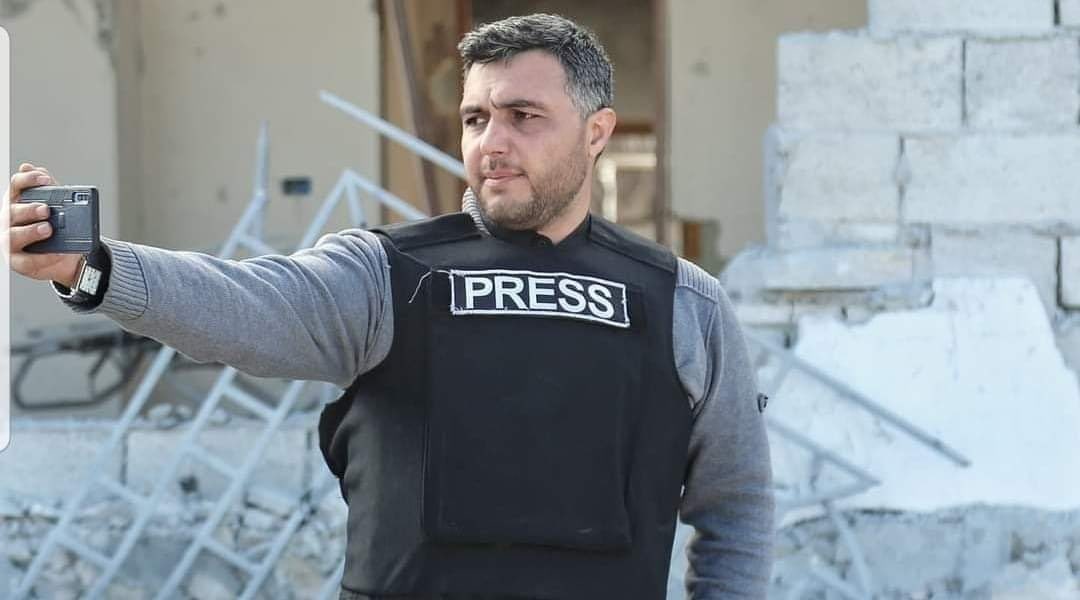Hussein Khattab, a reporter for Turkish state broadcaster TRT World, was shot dead by unidentified gunmen on 12 December, 2020, in Al Bab city, in Aleppo’s northwestern neighborhood.
Khattab was working on a photographic report about displaced people in Al Bab and the dangers surrounding their living conditions due to the Covid-19 pandemic. In the middle of his work, two masked men on a motorbike shot him 10 times near the city’s cemetery, killing him instantly.
Al Bab is controlled by Ankara-backed Syrian armed groups and the Turkish Armed Forces (TSK).
Khattab, also known as ‘Kara Al-Safrani’, had earlier warned on his Facebook account about an assassination attempt against him on 23 September, 2020,. The post, published four days after the threat, identified a man named Ahmed Al-Abdullah as the attacker.
According to the journalist’s statement, the attack was thought to be related to a photographic report he was working on in the village of Tar’hine, located in the Aleppo region, about living conditions, the lack of a school or clinic, and the poor living conditions of the people living there.
Due to the lack of responses by the police about this issue, he was forced to leave his house.
Khattab, who was a member of the executive office of the Aleppo Media Union, worked in several media outlets, the most recent of which the Turkish TV channel TRT Arabic, for which he provided video reports.
Khattab, who has been working for TRT Arabic since November 2019, recently covered sensitive topics including interviews with victims of a chemical attack, according to clips of his reporting he shared on his personal Facebook page. On that page, where he had about 5,000 followers, Khattab also posted footage of the conditions for internally displaced people at camps in northern Syria, and a bomb attack in the border city of Jarabulus.
UNESCO Director-General Audrey Azoulay has condemned the killing of Hussein Khattab, calling for an investigation into the murder. “I condemn the murder of journalist Hussein Khattab and call on the authorities to identify and prosecute those responsible for this crime. Violence against the media deprives people of information they need and deserve to obtain, particularly in times of strife and pandemic.”

